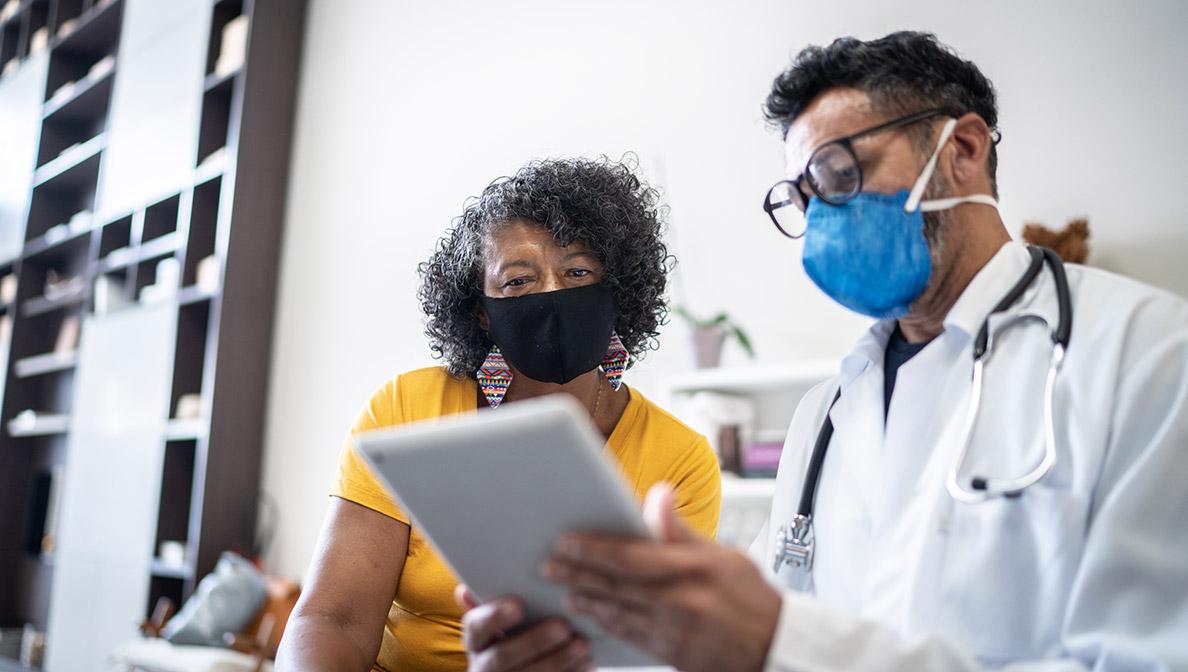We're Training More Diverse Investigators to Help Improve Clinical Trials
Our company has partnered with National Medical Fellowships to help expand the pool of diverse principal investigators
We're Training More Diverse Investigators to Help Improve Clinical Trials
For as long as he can remember, Adeyemi Adenola wanted to be a doctor. Yet, after studying internal medicine in Nigeria and moving to the U.S., he found a new passion for helping patients through clinical research.
“I realized that you can make a wider impact on patient population when you’re not limited by the number of patients you see,” said Adenola, a Merck scientist in clinical operations.
But as Adenola pursued a new career path in clinical studies, he soon discovered just how important his involvement with clinical participants would be, especially among racial and ethnicly diverse groups.
“A study participant is no different from a patient. They want somebody whom they can readily relate with,” Adenola said.
From seeing the relief on a Hispanic participant’s face when a translator was in the room to feeling an extra sense of comfort and openness from a Black participant in a testing environment, Adenola experienced the positive effect a diverse physician could have when they play a role in the clinical trial process.
Increasing diversity in clinical trials
Ensuring diversity in clinical trials has been historically challenging. Barriers to participation, like a lack of clinical trial awareness, time and resource constraints and mistrust of the process and information, are well recognized in the medical community.
Our company is committed to enrolling diverse people in our clinical trials across the globe. One of our latest efforts involves our sponsorship of the National Medical Fellowships’ new Diversity in Clinical Trials Research program (NMF Dctr), which aims to support and train diverse physicians to become principal investigators (PIs) in clinical trials.
A PI oversees and is responsible for the execution of the clinical investigation and must ensure the trial is conducted compliantly and that record keeping is appropriate and up to date. They’re also charged with protecting the rights, safety and welfare of study participants.
“A more diverse workforce, particularly the expansion of the pool of minority principal investigators, helps build trust, improves the diversity of clinical trial participants, and better demonstrates the safety and efficacy of new medicines in all populations,” said Luther Clark, deputy chief patient officer.
Dr. Maria Garcia-Jimenez, a hematology/oncology fellow at UCLA David Geffen School of Medicine, is a participant in the NMF Dctr program and thinks creating more diverse clinical trial teams has the potential to improve the experience of diverse patients.
“There’s something to be said for how different, in a positive way, a patient experience can be when there’s shared language or shared culture or even both between the patient and the clinical trial team,” said Garcia-Jimenez, whose native language is Spanish.
“I've had interactions where patients are very grateful to interact with somebody who can speak their primary language and these interactions are much more personable."
Strengthening the clinical trial experience
Adenola and Garcia-Jimenez are two of 26 scholars selected for the inaugural class participating in the NMF Dctr program. The curriculum helps equip investigators with the tools and support needed to lead clinical trial research teams.
“I’m excited for the opportunity to gain more in-depth training on the processes and regulations involved in each of the different phases of clinical trials.”
Increasing diverse participation in clinical trials plays a crucial role in ensuring that new treatments and preventative care plans are safe and work well for people from different communities.
As our recruitment process continues to evolve so that our clinical trials achieve the appropriate participant representation, we believe expanding the pool of PIs from groups underrepresented in medicine may help improve the diversity of participants in clinical trials.
“One of the key barriers to achieving clinical trial diversity is the shortage of suitably qualified investigators in underrepresented communities,” said Clark. “A diverse workforce is better able to relate, empathize and communicate effectively with patients.”





